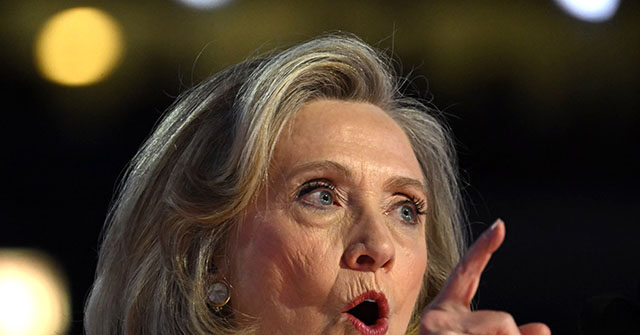In a recent interview with CNN, former presidential candidate Hillary Clinton sought to draw a controversial connection between Donald Trump and the historical context of Nazism, invoking imagery associated with fascist movements. During the discussion with Kaitlan Collins, Clinton expressed concerns over Trump’s upcoming campaign rally at Madison Square Garden, likening it to a 1939 event that hosted a pro-Nazi rally organized by the German American Bund. This reference was taken directly from her published writings, emphasizing her view that the historical parallels warrant serious attention due to the potential dangers Trump may pose to the American political landscape.
Clinton recalled the outrage expressed by President Franklin Roosevelt in the 1930s over the growing support for fascism and neo-Nazi ideology in America. She warned that, despite some individuals being reluctant to acknowledge these parallels, it is crucial to be aware of the current political climate and the threats it poses to the fabric of democracy in the United States. Her comments echoed a broader sentiment within the Democrat Party, which views Trump and his supporters as embodying a significant risk to national unity and democratic principles.
The basis for Clinton’s comments stems not only from her own analysis but also from remarks made by Democratic strategist James Carville. Carville has suggested that Trump’s rally is a deliberate signal to extremist factions, highlighting a perceived propensity for fascism within Trump’s political rhetoric and actions. He emphasized the historical significance of the location in question and urged viewers to consider the implications of holding a rally in such a charged venue, drawing parallels to events that unfolded leading up to World War II. This narrative of linking Trump to historical fascism is aimed at galvanizing opposition against him and reinforcing the notion of a looming threat to democracy.
Throughout this discourse, Clinton has previously articulated a disdain for Trump’s supporters, famously labeling them as a “basket of deplorables” — a term that’s haunted her since its initial use during the 2016 election. This tendency to categorize large swathes of political opponents poses a risk of deepening divisions within the electorate, particularly as political rhetoric continues to intensify on both sides. Furthermore, President Joe Biden has echoed similar sentiments, characterizing Trump’s base as a danger to the nation, which has only expanded the dialogue around the political identity of American voters who align with the former president.
Despite these efforts by prominent Democrats to frame Trump in this manner, recent polling data indicates that he remains a formidable contender in the electoral landscape. For instance, a recent Emerson poll shows Trump neck-and-neck with Vice President Kamala Harris in New Hampshire, a state traditionally seen as a stronghold for Democratic candidates. The finding suggests that Trump’s message is resonating with voters, potentially undermining the Democratic narrative that demonizes his platform and supporters as fundamentally opposed to American values.
Overall, this complex political milieu reveals a deeper struggle within American politics, where rhetoric and historical comparisons serve as tools for mobilization and persuasion. As Clinton and other Democrats link Trump to the fascist movements of the past, they are simultaneously reinforcing the tribal nature of contemporary political discourse, risking further entrenchment of divisions. The ongoing debates around social media content moderation and the responsibilities of political figures highlight the urgent need for constructive dialogue regarding the interpretation of history, the nature of threats to democracy, and the importance of understanding the intentions and sentiments of a diverse electorate.

